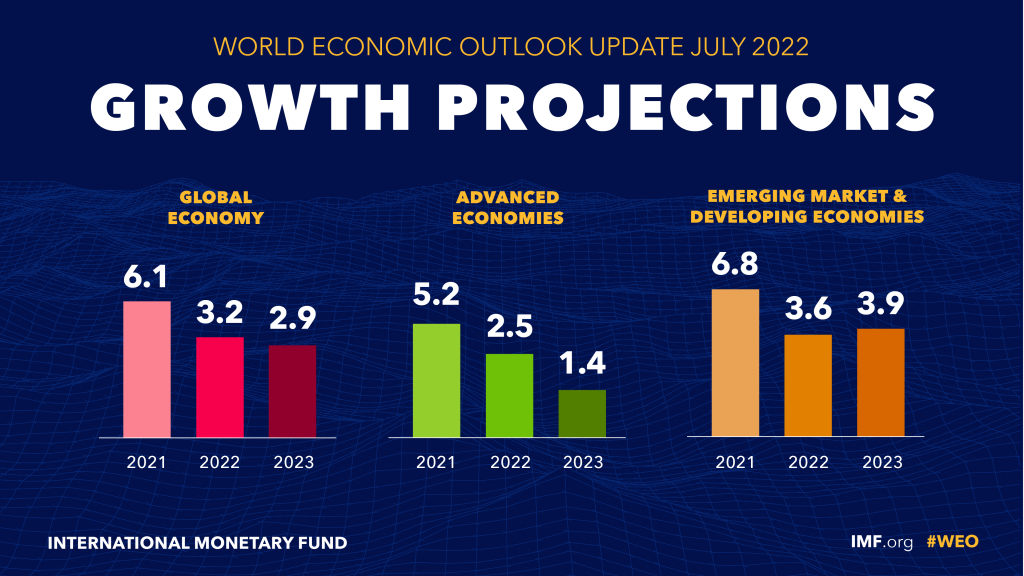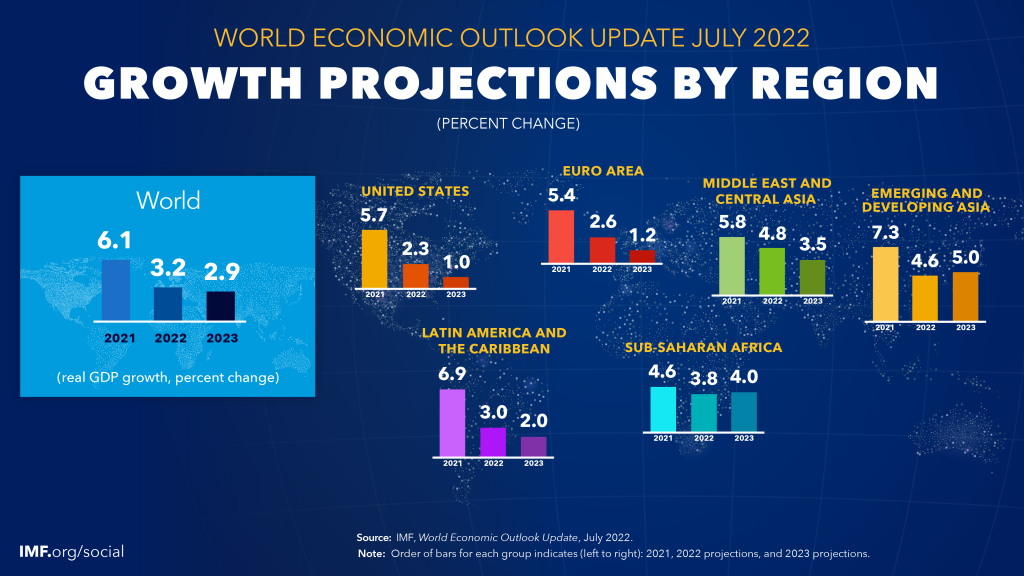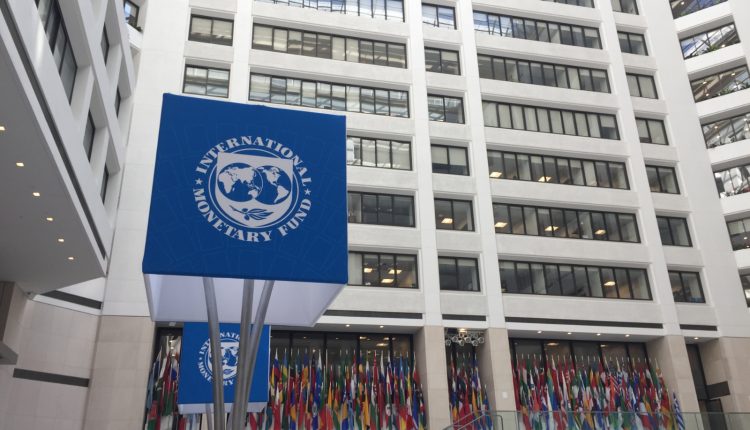IMF downgrades global, MENA economic outlook once again since Ukrainian war outbreak
The International Monetary Fund (IMF) has on Tuesday downgraded its global real GDP growth outlook for the second time since the outbreak of the Russian war in Ukraine to 3.2 percent from 3.6 percent it projected in April.
This new update followed the release of the IMF’s World Economic Outlook Report.
According to the report, the IMF expects global economic growth to moderate to 2.9 percent in 2023, lower than April’s projections of 0.7 percent.
“Lower growth earlier this year, reduced household purchasing power, and tighter monetary policy drove a downward revision of 1.4 percentage points in the US. In China, further lockdowns and the deepening real estate crisis have led growth to be revised down by 1.1 percentage points, with major global spill overs,” the report read.
“And in Europe, significant downgrades reflect spill overs from the war in Ukraine and tighter monetary policy,”
The Washington-headquartered institution has also revised up its projections for global inflation to 6.6 percent in advanced economies and 9.5 percent in emerging markets and developing economies in 2022 due to soaring food and energy prices — upward revisions of 0.9 and 0.8 of a percentage point, respectively.
“In 2023, disinflationary monetary policy is expected to bite, with global output growing by just 2.9 percent,”
The war in Ukraine could lead to a sudden halt in European gas imports from Russia and could make curbing inflation a hard mission for countries, the report added.
For the Middle East, Central Asia, and Sub-Saharan Africa, IMF said the outlooks remain positive owing to the effects of elevated fossil fuel and metal prices for some commodity-exporting countries.
However, the IMF revised down MENA’s real GDP growth to 4.8 percent and 3.5 percent in 2022 and 2023, respectively, from 5 percent in 2022 and 3.6 percent in 2023 it expected in April.
IMF also expected the growth of global trade will slow down in 2022 and 2023 by more than what was previously forecasted, reflecting the fall in global demand and supply chain problems.
“The USD’s appreciation in 2022 — by about five percent in nominal effective terms as of June compared with December 2021 — is also likely to have slowed world trade growth, considering the USD’s dominant role in trade invoicing, as well as negative financial balance sheet effects on demand and imports in countries with dollar-denominated liabilities,” the IMF reported explained.
The report did not include its updated projections for Egypt’s real GDP growth.
In April, the IMF lowered its forecast for Egypt’s real GDP growth in 2022 by 0.3 percent to reach 5.6 percent, from the 5.9 percent expected in January — before slowing down to 5 percent in 2023.
There is a new loan deal is awaiting an approval of the IMF’s Board of Directors approval after the fund’s mission finalises talks with authorities in Egypt in July.
https://www.linkedin.com/video/event/urn:li:ugcPost:6955912614136705025/




